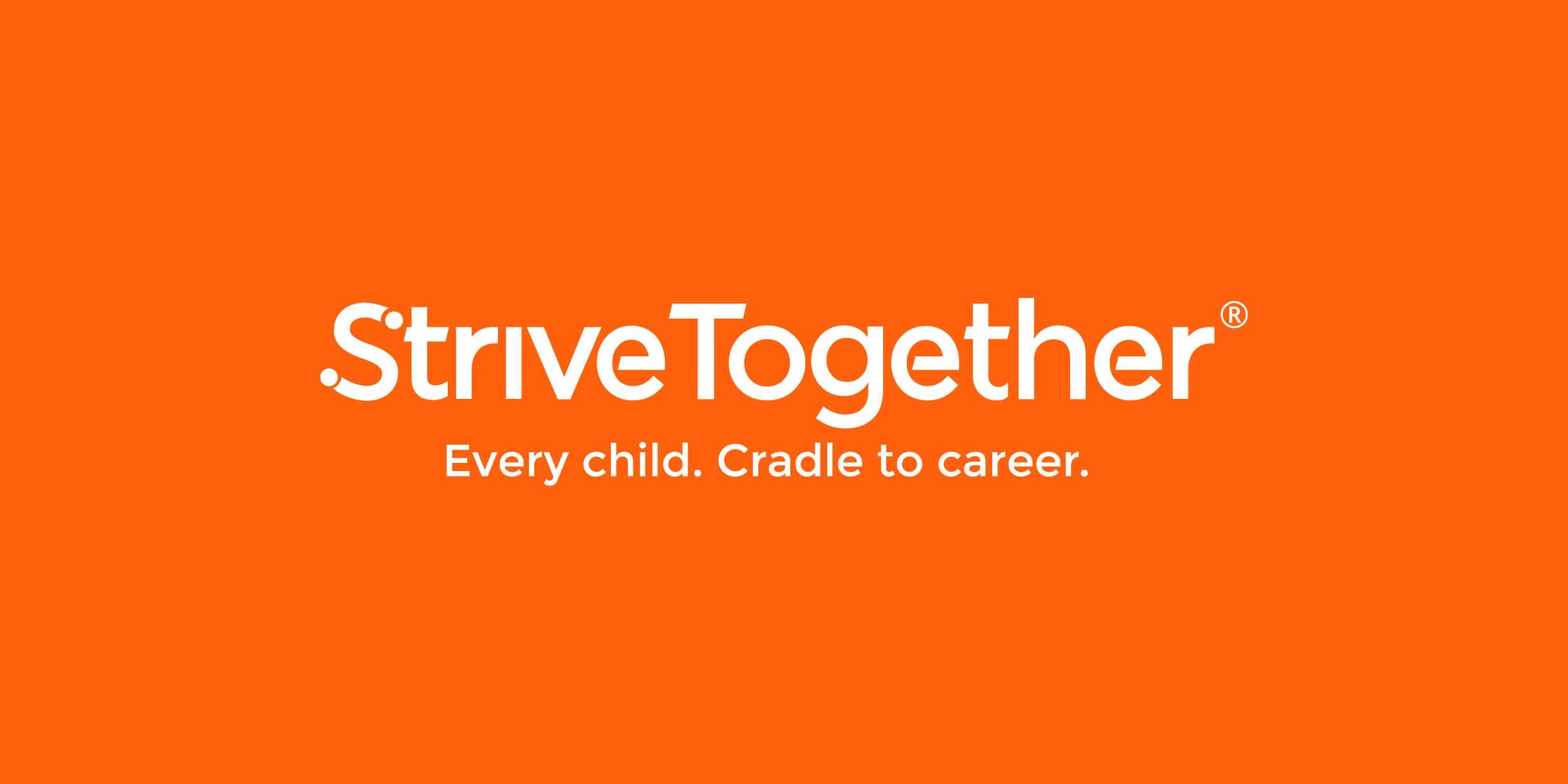Like so many others, I do this work because I believe that every child in our country should be able to reach his or her potential. The work is personal for me. I know what a profound effect education has had on my life. As a first-generation college student, I was able to achieve economic mobility and I want others to succeed in the same way. But because I’m white, I was afforded many opportunities simply because of my skin color. And in 2018, we still live in a country in which race determines social outcomes.
There is much work to be done to achieve StriveTogether’s vision of “every child, cradle to career.” It is not enough for us to say that our work is about equity. Rather, we have to become an organization that believes in and practices equity at its core. We must make the implicit, explicit. We have to talk about race, power, privilege — subjects that can be somewhat unsettling to discuss — especially for white people like myself who get uncomfortable thinking about our unearned privilege and power.
Recently, I read an article on white supremacy culture that was like a punch in the gut to me. When I think of white supremacy, I think of the evils of the KKK, hate crimes, burning crosses, neo-Nazi groups, the horrors of the Charlottesville rally last year. But that’s overt white supremacy. In this article, I read words such as perfectionism, sense of urgency, quantity over quality, worship of the written word. These characteristics aren’t just familiar and relatable — they are what I have held as standards for work. I haven’t known anything else. As a leader of an organization, I have perpetuated attitudes and behaviors that are grounded in white supremacy.
These days, I find myself questioning so much that I thought I knew. It’s been an eye-opening journey. More recently, I started listening to the Seeing White podcast, which explores what it means to be white and America’s deep history of white supremacy. I personally believe that this podcast should be required listening for all Americans and certainly for anyone trying to do the type of work we’re doing at StriveTogether.
As I listened to the podcast, I had to ask myself: How on earth did I get to be 40 years old without understanding the origins of race and racism? I’ve often equated racism with bigotry, but in fact, racism is so much more. Racism is power plus prejudice. White people are the only racial group to have ever established and retained power in the United States. The systems and structures in place keeping children from getting the outcomes we want to see in communities, keeping those disparity gaps wide, exist on purpose. This I’ve known, but I have never been forced to confront what I may be doing or not doing to keep these systems and structures in place.
Fortunately, I’ve been able to do some learning in private — reading articles on planes, listening to podcasts while I run. Several times in the past year, however, I’ve found myself in “learn in public” situations in which I’ve said the wrong thing, become defensive or reacted when someone just wanted to be heard. Through each of these situations, I’ve had the best of intentions, but intentions don’t always match the impact. I’ve made mistakes — some little, some not so little. It has been rough, and it has been beautiful. I have been very uncomfortable, and I have most definitely grown. I have been blessed with friends, colleagues and advisers who have both challenged and supported me on the journey thus far.
I have a long way to go, but after more than a decade of supposedly “doing” equity work, without explicitly confronting my own privilege and implicit biases, I feel much more prepared to take on this work than I was a year ago. I am ready to continue on this journey, no matter how uncomfortable and unsettling it becomes. Because no matter how hard it is for me, I know that it is nowhere near as painful, frustrating and emotionally exhausting as it is for people of color to engage in these types of discussions with white people like me. If they’re willing to do it, I need to deal with my discomfort and keep learning and growing.
At StriveTogether, we have been having “lunch and learn” discussions where we come together as a team to informally — in a safe space — talk about issues of race equity and inclusion. During a recent lunch and learn, I made what I thought at the time was an innocent comment, but upon reflection was likely more of a microaggression. The next day, I sent a quick note of apology to the colleague with whom I was speaking, letting her know I had given what I said more thought and that I wanted to clarify my intention. She later replied that she understood and appreciated that I had followed up to check in. And then she said something that has stuck with me: “Privilege is often a little black dress that many white women have in their closet and can access anytime, can take it for granted, and often don’t recognize its power.”
This colleague went on to say that by taking the time to reflect and check in on the impact of what I had said, I am “making it my business to ensure that equity is at the forefront of the work when I don’t have to.” But, I absolutely believe I HAVE to. That’s what being a white leader for racial equity means to me — learning in public, making mistakes, getting uncomfortable, growing and doing better. It is my responsibility to make sure that I pull the “little black dress” of privilege off the closet shelf and use it for every child, from cradle to career.







Hi Jennifer,
Thanks for your personal testimony and example. This is hard work…and those of us who are forced to live it everyday thank you for sharing this.
Thank you!